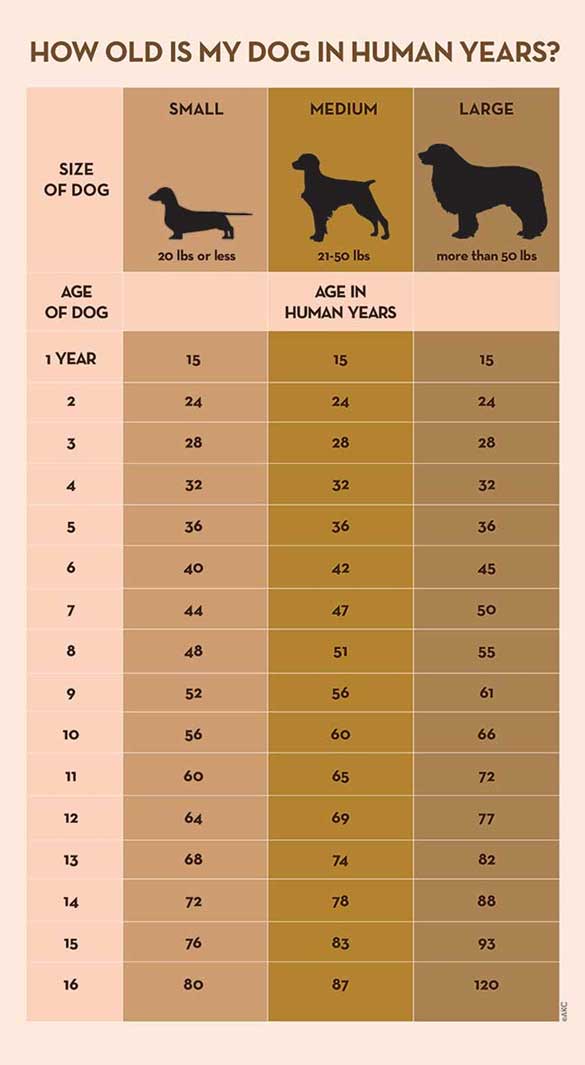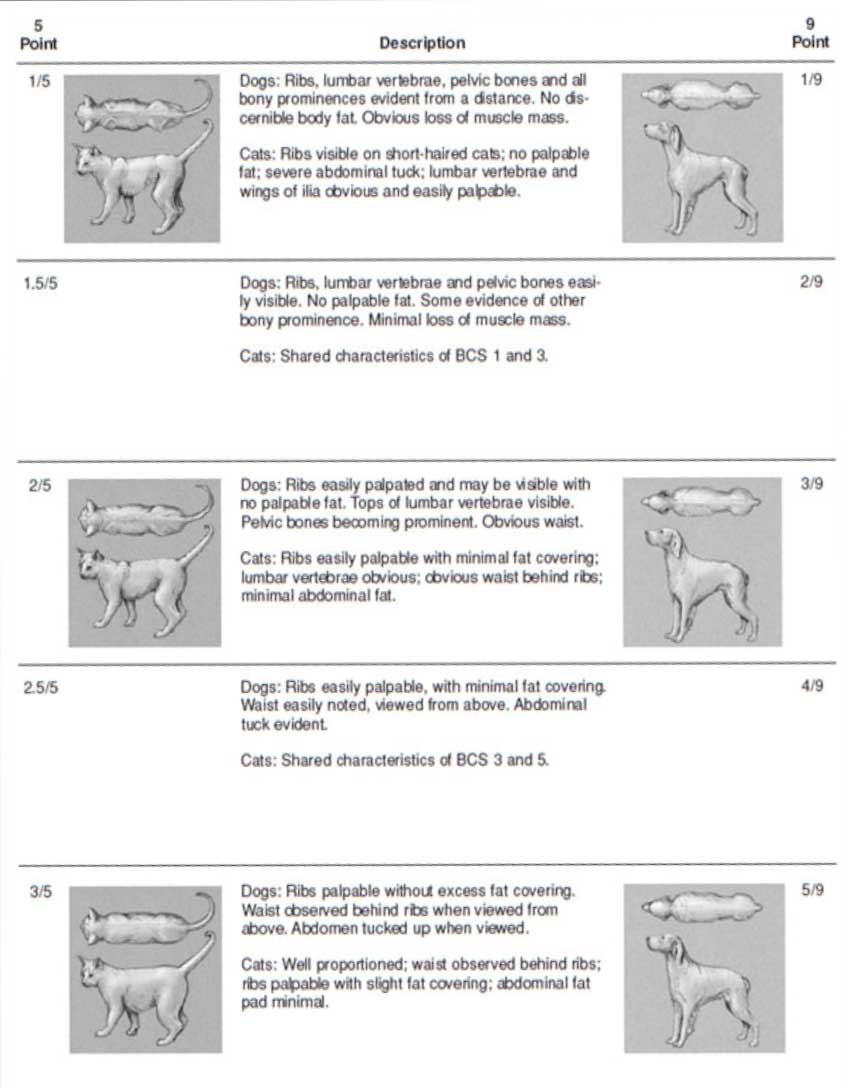Your New Pet: Information & Tips for a New Dog or Cat
What to feed your Pet
As veterinarians, we are asked what is the best food to feed my pet and how much should I feed?
The answer to this question is both easy and complicated. First we must identify the goal of feeding your pet. The goal is to feed a complete, balanced, digestible, palatable and safe diet. This sounds easy to do but if you ever walked down the pet food section, you know that with all the choices available we get easily confused. “No Grain”, “Meat First”, “Small Breed”, “Low Fat”, High Fiber”, all are pushed on us in high power sales marketing that few can avoid.
The best way to navigate through this maze is to remember one thing: feed the pet to the appropriate body condition for the appropriate life stage. This means that puppies and kittens should be fed a puppy or kitten formula until the age of one year. Large breed dogs such as Labs, Golden retrievers, Great Danes, Boxers and dogs over 60 lbs. as adults should be fed large breed puppy formula. Senior dogs and cats (pets over the age of 8 years) should be fed a high protein senior formula diet. All other pets should be fed a maintenance or high energy/activity formula.
Commercial Diets are Acceptable
Many people believe that commercial diets are inferior due to mass production and processing methods. This cannot be farther from the truth. The clear majority of commercially available pet foods are complete, balanced, digestible, palatable, and safe for your pet. We Recommend the following diets:
- Pro Plan
- Royal Canin
- Science Diet
How much and when should I feed?
Understanding your pet’s nutritional requirements is essential for feeding your pet the proper amount. Following the guidelines for feeding on the bag of food is not always the right way. You should base your feeding amount per the amount needed by the pet. This means matching your pets body condition score or BCS (see enclosed chart) with the right number of daily calories your pet needs. How often you feed your pet depends on your ability to provide the needed food at certain times of the day. We recommend twice daily feedings or “bowl always down” so long as portion control is maintained.Feeding according to the house training schedule is recommended as well. Small young puppies and kittens up to 12 weeks of age may require feeding every 8 hours to prevent low blood sugar levels.
If you have any questions on feeding please contact us at any time. We love to help you get your pet off to the right start.
What foods do you avoid with your new pet?
We strongly recommend staying away from “raw” diets or diets mixed with raw ingredients. These diets may hold harmful bacteria that can make you and your pet very sick. While no diet is immune to spoilage, cooking reduces the chance of food borne illness.
Housetraining
Housetraining can be easy or difficult. The most common mistakes can be avoided by simply following a few rules.
- Keep a set schedule for the pet to be let out. Whether it is a Sunday or a Monday, the schedule should always remain the same. We recommend letting the pet out every 2 hours up to the age of 12-14 weeks old. Increase the time interval by 30 minutes for every two weeks of life after that. Remember to feed 15 minutes prior to going out for “potty time”.
- Use positive praise. Never rub the pet’s nose in the mess. This does not help the pet learn and may make the pet afraid of you. If you find a mess, clean it up and let the pet out for a few minutes. Yelling and screaming at the pet only creates a sense of fear and does not teach the pet what to do.
- Use a bell tied to a door handle to condition the pet to go outside. Have the bell low enough on the door so that the pet can ring the bell with a tap from the nose or paw. Have the pet ring the bell every time you let the pet out. Over time, the pet will associate the bell ringing with going outside. This also allows you to know when the pet needs to go out. Many pets make it a game!
- When difficult housetraining situations occur, please refer to VeterinaryPartner.com for further house training tips or call us.
Vaccination Protocol
Our vaccination protocol is simple. For kittens or puppies vaccinations start between 6-8 weeks of age and continues every 3-4 weeks until two vaccine sessions have occurred past the age of 12 weeks. So older puppies and kittens may not need as many. However, younger puppies and kittens are more vulnerable to many of the diseases we vaccinate against. Therefore, it is very important to start vaccinating as close to 6-8 weeks of age. Our vaccines are safe, effective, and approved by the FDA. Multivalent vaccines are used when appropriate.
We recommend the following vaccinations for puppies*:
- Distemper virus (Beginning at 6-8 weeks)
- Adenovirus (Beginning at 6-8 weeks)
- Parainfluenza virus (Beginning at 6-8 weeks)
- Parvo virus (Beginning at 6-8 weeks)
- Leptospirosis (Beginning at 6-8 weeks)
- Corona virus (12 weeks)
- Bordetella (12 & 15 weeks)
- Canine Influenza H3N2 & H3N8 (12 & 15 weeks)
- Rabiesvirus 1 year (12 weeks or older)
We recommend the following vaccinations for kittens*:
- Feline rhinotracheitis (Beginning at 6-8 weeks)
- Panleukopenia (Beginning at 6-8 weeks)
- Calici virus (Beginning at 6-8 weeks)
- Chlamydia psittaci (Beginning at 6-8 weeks)
- Feline leukemia virus (Beginning at 6-8 weeks)
- Rabies virus 1 year (12 weeks or older)
*Modifications of the above protocol may be made at veterinarian’s discretion.
Parasites and Deworming
Parasites such as round worms, fleas, ticks, ear mites, skin mites and other parasites are often present in a new puppy or kitten. Many of these parasites may be able to infect humans and therefore require treatment to eliminate them. Routine deworming is always performed at our hospital. We deworm puppies and kittens at least twice beginning at age 6-8 weeks. We use a broad-spectrum deworming agent that helps to eliminate roundworms, hookworms, tapeworms, and whipworms. Routine elimination and prevention of fleas and ticks is easily performed using a topical or oral monthly medication such as Bravecto, Simparica, or Nexguard.
Heartworm disease is not typically a problem in pets under 3 months of age. The young pet must have exposure to a biting infective mosquito carrying the heartworm parasite. Starting your pet on monthly heartworm prevention such as Triheart or Revolution (cats) will prevent the disease. An alternative to monthly prevention is Proheart. Proheart protects your dog for 6 months against heartworm infection from a single injection. Proheart needs to be given to pets 6 months of age or older. We even remind you in six months when your dog is due for another Proheart injection to ensure your dog is protected all year long.
While Prevention of heartworm disease is easy and relatively inexpensive when compared to treatment it still must be done. We routinely dispense an age/weight appropriate preventative for your pet. If you have any questions please ask any St. Francis Team member.
Spaying and Neutering
Spaying and neutering refer to the removal of reproductive organs such as the uterus, ovaries, and testicles. Female cats and dogs are spayed. Male cats and dogs are neutered. The purpose of spaying and neutering is to prevent reproduction, medical complications in later years such as uterine infection, testicular and prostate cancer, and reduce pet overpopulation.
We prefer to spay and neuter pets between 4 and 6 months of age. Larger breed dogs such as Labradors should be spayed and neutered closer to 6 months. All female pets should be spayed prior to their first heat cycle to reduce the incidence of mammary cancer in later years and prevent pet overpopulation. Some pets such as rescue animals may be spayed and neutered any time after 8 weeks of age.
The typical time to spay and neuter is 3-4 weeks after the pets last distemper vaccination. At that same time, we prefer to microchip the animal as a form of permanent identification, remove any baby teeth that have not fallen out, perform pre-anesthetic bloodwork to ensure a smooth anesthetic event and serve as a baseline for future health concerns. Pain medication is routinely prescribed for the comfort of your pet. Your pet may go home the same day or spend a night in quiet comfort recuperating.
If you have any questions please ask one of our doctors. They have performed thousands of spays and neuters and are well versed in the subject.
Financial Considerations
Payment in full is always expected at the end of your appointment or when your pet is discharged from our hospital. We accept cash, Visa, MasterCard, DiscoverCard, personal checks with valid I.D. and Care Credit. We do not offer any billing through our office.
We are proud to offer our Premier Pet Wellness Plans! Pet Wellness Plans allow you to keep a budget and keep you pet on year round preventative for a low price. We also offer a 10% discount on all other products and services (except grooming and diets).
We are constantly trying to expand our payment options and new vehicles may be introduced in the future.
As a new owner, we strongly encourage the use of Pet Insurance to keep your pet healthy and not a financial burden. We recommend Nationwide Pet Insurance for your pet. It’s easy to get reimbursed and just like home or auto insurance, it can pay off if your pet has an unexpected health problem.
Hospital Hours
We are open Monday through Thursday from 8am-6pm, Friday 8am-5pm and Saturday 8am-12pm. We welcome walk-ins but cannot guarantee being seen right away. Emergencies are accepted at all hours of operation when a veterinarian is on premises. All other emergencies are referred to our after hours partners Med-Vet or Dogwood. Call our office first! Our phones will connect you directly to your choice of emergency hospitals with the touch of a button.
What does St. Francis Veterinary Hospital Offer?
We provide a broad spectrum of diagnostic and surgical veterinary care for dogs, cats, horses and small pets, including:
- Preventive Care
- Premier Wellness Pet Plans
- Illness & Injury Care
- Vaccinations
- Soft Tissue Surgery
- Orthopedic Surgery
- Stem Cell Therapy
- Internal Medicine
- Regenerative Medicine / Platelet Rich Plasma Therapy
- Surgical and Therapeutic Laser treatment
- Surgical Oncology
- Chemotherapy
- Dermatology/Ophthalmology
- Veterinary Orthopedic Manipulation (VOM)
- Dentistry
- In-House Laboratory
- In-House Pharmacy
- Digital Radiology
- Digital Ultrasonography
- Heartworm/Flea Prevention
- Easy on-line Pharmacy home delivery
- Senior Care/Nutritional Counseling
- Standard Process Nutritional Supplements
- Grooming
- Boarding – medical/non-medical
Other Considerations for your young pet:
- When spaying or neutering why not harvest some Stem Cells for later use. It is less costly to “bundle” both procedures and it can be cryo-stored for later use.
- If you have a large breed puppy such as a German Shepherd, Great Dane, or Boxer, a stomach tack or gastropexy when spaying or neutering will greatly reduce the incidence of bloat later in life. It is relatively inexpensive and very effective.
- GET PET INSURANCE!
- Create a direct deposit fund for use only on your pet. This is easy and painless. Just a small amount out of every paycheck adds up. It is a great way to be able to afford you pet when the need arises. Besides, if you need it for anything else it will be there for you!
Essential and helpful websites:
On-Line home delivery pharmacy
Financial links
All Things St. Francis
Emergency care:
First Aid:
www.avma.org/…/Pages/Basic-Pet-First-Aid-Procedures.aspx
Toxic ingestion:
24 hour Doctor Staffed Emergency Hospitals:
www.medvetforpets.com/location/toledo
dogwoodvet.net/toledo.html
annarbor-animalhospital.calls.net
General Pet questions:
Pet Insurance:
www.petinsurance.com
Parasites:
www.capcvet.org/capc-recommendations/fleas
www.capcvet.org/capc-recommendations/ticks
Feeding your pet:
www.proplanvetdirect.com; use code 63NML for direct to your door pet food
www.fda.gov/AnimalVeterinary/SafetyHealth/RecallsWithdrawals/default.htm
Internal Medicine:
www.medivetbiologics.com
Behavior:
www.aspca.org/pet-care/dog-care/common-dog-behavior-issues
Pet Grief Counseling:
For humans in need:
Shelters and animal welfare:



